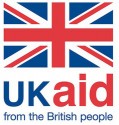EbA is the use of biodiversity and ecosystem services to help people adapt to the adverse effects of climate change. EbA involves governing and managing ecosystems to enhance their resilience to climatic stresses – maintaining, and where possible, improving the quality and quantity of the ecosystem services they provide to society – and in so doing supporting communities adapt to current and future climate risks. This contributes to achieving more sustainable forms of development, strengthening livelihoods to reduce poverty and minimise environmental degradation.
Despite their enormous value, the degradation of coral reefs, mangrove forests, sea grasses, coastal dunes and wetlands continues unabated. Moreover, these marine and coastal ecosystems are not adequately represented in climate change response measures and need to be more fully integrated into national and sectoral policies, particularly in small island states and developing countries. The advancement of national climate adaptation strategies and the revision of countries’ Nationally Determined Contributions (NDCs) in 2020 is an important opportunity to include marine and coastal ecosystems in official climate change responses.
There is significant potential to expand EbA in Africa. However, successful marine and coastal EbA requires several barriers to be addressed, namely policy development and alignment; regional cooperation; access to finance; capacity building; and improved partnerships with coastal communities and marginalised groupings.
Project description
Focusing on research, dialogue, policy alignment and capacity building activities, this project seeks to address the challenges of EbA policy uptake and implementation by supporting peer learning among four focus countries, namely South Africa, Mozambique, Tanzania and the Seychelles.
The project also supports the broader uptake of project lessons by working closely with the SADC Secretariat and other regional organisations such as the Nairobi Convention, WIOMSA, the Benguela Current Commission, African Union Commission, and the Indian Ocean Rim Association.
The project was initiated in April 2018 and was completed at the end August 2019.
Project activities
A regional policy conference was hosted in Johannesburg in January 2019. This brought together key representatives from our four focal countries and other key regional organisations. In addition, three capacity building and information dissemination workshops took place in the Seychelles, Mozambique and Tanzania, in partnership with local organisations. These offered national policy makers, NGOs and community-based organisations the opportunity to exchange EbA lessons and promote peer-to-peer learning. Other outreach activities were conducted to key regional institutions, include the Southern African Development Community Secretariat (SADC).
The key publication outputs of the project were a synthesis report and policy briefing. These publications contain a high-level overview of marine and coastal EbA globally and, through case studies and best practice examples, explore specific marine and coastal EbA components such as the role of innovative financing models, enabling partnerships, and gender perspectives and in the region. This report outlines specific recommendations to improve the contribution of marine and coastal ecosystems within NDCs and other regional climate responses.
In addition, four in-depth national reviews were produced that explore marine and coastal EbA in policy and practice relating to opportunities and challenges in varying contexts. Research for the national reviews was conducted by in-country experts using desktop research methodology and direct stakeholder engagement (with policymakers, practitioners and sector experts at the national, provincial and local levels) in the four focus countries. Key insights of the country reviews were incorporated in the synthesis report and policy briefing.
A video was produced showcasing the messages from key project stakeholders and highlighting the importance of EbA for the region.
What next?
This project forms part of SAIIA’s long-standing engagement with regional policy stakeholders around climate change responses and sustainable blue economies, within the broader context of sustainable natural resource governance for development. The research and stakeholder relationships established through this project will be leveraged in ongoing activities relating to capacity building and policy development.
Learn more about SAIIA’s engagement on natural resource governance issues.
If you are interested in partnering with us, please contact us at cpt.admin@saiia.org.za.
Project outputs
- Synthesis report
- Policy Briefing
- Video
- Poster
- Youth blog
- Country reports: Mozambique, Seychelles, South Africa and Tanzania.
Useful links
- Policy Briefings | 19 Jun 2019: Ecosystem-based adaptation in South African coastal cities: Challenges and opportunities
- Policy Insights | 7 May 2018: Promoting Marine and Coastal Ecosystem-Based Adaptation
- Occasional Papers | 19 Jun 2019: Ecosystem-based adaptation in South African coastal cities
- Policy Insights | 11 Jun 2017: Integrated Community- And Ecosystem-Based Approaches to Climate Change Adaptation
- Opinion & Analysis | 16 Jan 2019: Towards healthy ecosystems in 2019
- Occasional Papers | 23 May 2017: Integrated Marine and Coastal Management in the Western Indian Ocean: Towards a Sustainable Oceans Economy
- Policy Briefings | 11 Jul 2018: Socio-ecological resilience in South Africa’s Blue Economy: the role of marine protected areas




